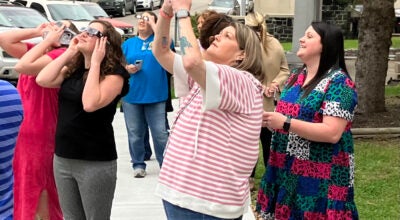Bevin files to protect freedom of prayer before public meetings
Published 10:22 am Friday, November 17, 2017
FRANKFORT (KT) – Gov. Matt Bevin is joining 21 other states in filing a “Friend of the Court” brief in support of a North Carolina religious liberty case.
The Bevin administration, along with the states of West Virginia, Alabama, Arizona, Arkansas, Colorado, Georgia, Indiana, Kansas, Louisiana, Michigan, Missouri, Montana, Nebraska, Nevada, Ohio, Oklahoma, South Carolina, South Dakota, Texas, Utah and Wisconsin, are petitioning the Court in what are called amicus briefs to uphold well-established precedents protecting the freedom of prayer before public meetings.
“Intervention is critical to resolve the disagreement in the lower courts and to preserve the ability of state and local legislative bodies to accommodate the spiritual needs of lawmakers,” states the brief, filed by Bevin’s General Counsel, Steve Pitt. “This Court should grant review to provide certainty for the thousands of state and local governments that have long allowed lawmaker-led prayer in their proceedings—and thereby continue a tradition that has become part of the fabric of our society.”
In recent months, lower courts have issued conflicting rulings on the topic. The U.S. Court of Appeals for the 6th Circuit (which covers Kentucky) and a panel of the 4th U.S. Circuit both ruled in favor of religious liberty. However, the full 4th Circuit later reversed its panel’s earlier decision.
Citing two landmark Supreme Court cases — Marsh v. Chambers (1983) and Town of Greece v. Galloway (2014) — the states argue that the 4th Circuit’s conclusion “is entirely unmoored from [Supreme Court] precedent.”
“Lawmaker-led prayer is a common and important form of legislative prayer, which connects lawmakers to a tradition dating to the time of the Framers and allows part-time and volunteer lawmakers to reflect the values they hold as private citizens,” the brief notes. “This Court’s review is necessary to undo the 4th Circuit’s erroneous decision, which would sweep away what has so long been settled and threaten to create new controversy and begin anew the very divisions along religious lines that the Establishment Claus seeks to prevent.”
The case is styled Rowan County v. Lund.





